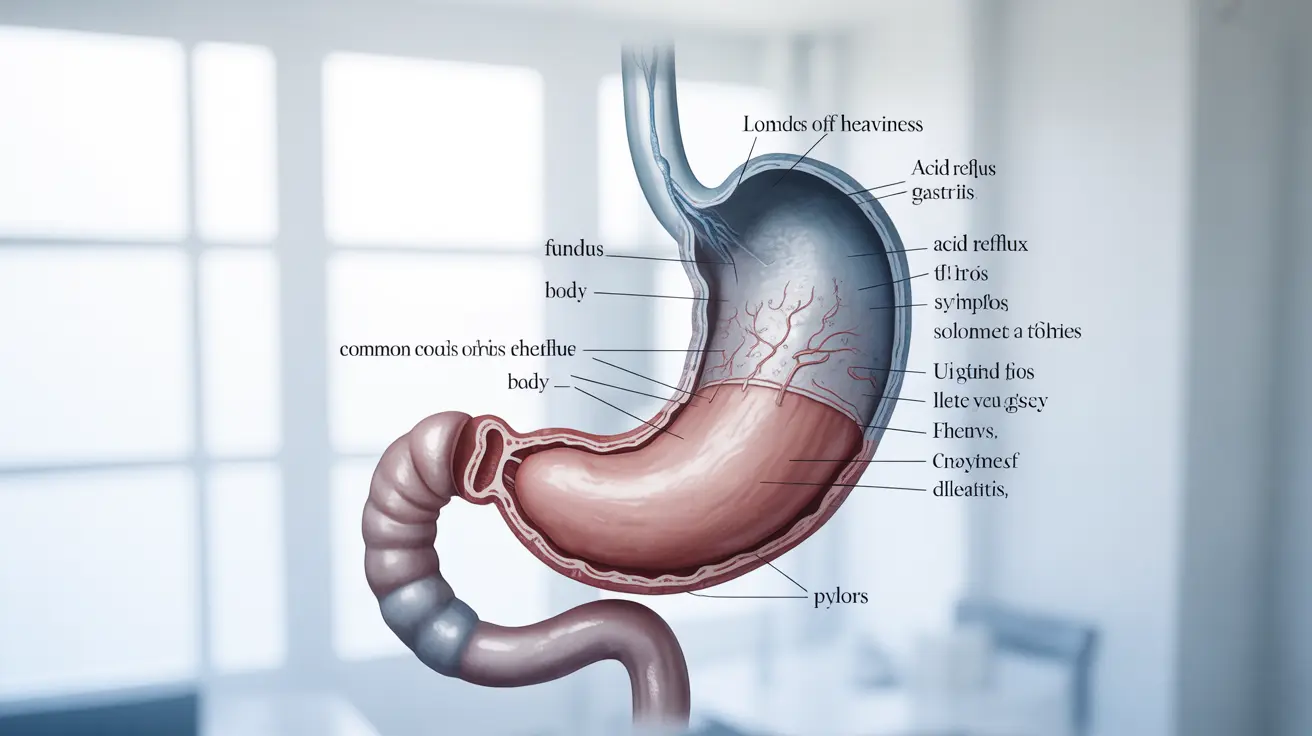That uncomfortable pit in your stomach feeling can be both physically and emotionally distressing. Whether it's a sensation of heaviness, fullness, or a nagging discomfort in your upper abdomen, this common experience can stem from various causes ranging from digestive issues to emotional stress.
Understanding what triggers this sensation and knowing how to address it can help you find relief and determine when medical attention might be necessary. Let's explore the various aspects of this common but concerning symptom.
Common Causes of Stomach Heaviness
The pit in your stomach feeling can arise from several different sources:
Physical Causes
Physical triggers often include:
- Overeating or eating too quickly
- Food intolerances or sensitivities
- Acid reflux or GERD
- Indigestion (dyspepsia)
- Gastroparesis
- Gas and bloating
Emotional and Stress-Related Causes
Your emotional state can significantly impact your digestive system through the gut-brain connection:
- Anxiety and panic attacks
- Chronic stress
- Depression
- Anticipatory nervousness
- Social anxiety
Managing and Preventing Stomach Discomfort
Dietary Modifications
Making thoughtful changes to your eating habits can help prevent that heavy feeling:
- Eat smaller, more frequent meals
- Chew food thoroughly
- Avoid trigger foods
- Stay hydrated throughout the day
- Limit fatty or spicy foods when sensitive
Lifestyle Changes
Simple adjustments to your daily routine can make a significant difference:
- Practice stress management techniques
- Maintain regular meal times
- Stay upright for 2-3 hours after eating
- Engage in gentle physical activity
- Get adequate sleep
When to Seek Medical Attention
While occasional stomach heaviness is common, certain symptoms warrant professional evaluation:
- Persistent pain lasting several days
- Severe abdominal pain
- Unexplained weight loss
- Difficulty swallowing
- Blood in stool
- Persistent nausea or vomiting
Frequently Asked Questions
What causes the pit in my stomach feeling and when should I be concerned about it?
The pit in your stomach feeling can be caused by various factors, including digestive issues, anxiety, or stress. Be concerned if you experience severe pain, persistent symptoms, unexplained weight loss, or if the feeling interferes with daily activities.
How can I relieve the heaviness or fullness sensation in my stomach after eating?
Relief can often be found through eating smaller portions, chewing thoroughly, avoiding trigger foods, staying upright after meals, and taking a gentle walk. Over-the-counter antacids may also help when appropriate.
Can stress or anxiety cause a pit in the stomach feeling and how is it managed?
Yes, stress and anxiety commonly cause stomach discomfort through the gut-brain connection. Management techniques include deep breathing exercises, regular physical activity, meditation, and seeking professional mental health support when needed.
What foods or habits commonly trigger a pit in the stomach or stomach discomfort?
Common triggers include spicy foods, fatty meals, eating too quickly, large portions, caffeine, alcohol, and lying down soon after eating. Keeping a food diary can help identify personal trigger foods and habits.
When should I see a doctor for persistent pit in the stomach, bloating, or abdominal pain?
Consult a healthcare provider if symptoms persist for more than a few days, are accompanied by severe pain, fever, unexplained weight loss, difficulty swallowing, or if you notice changes in bowel habits or blood in your stool.




